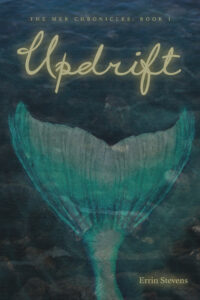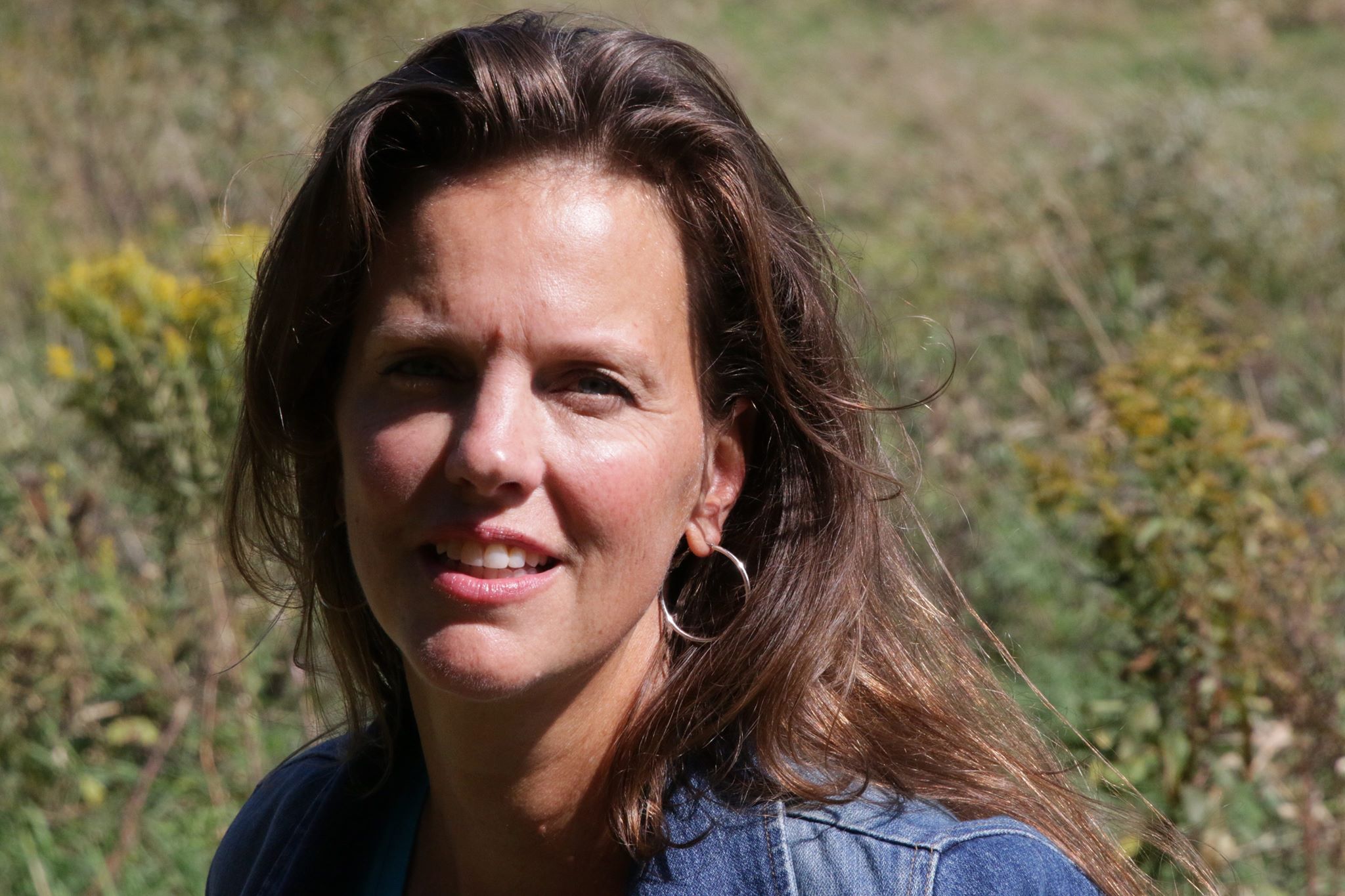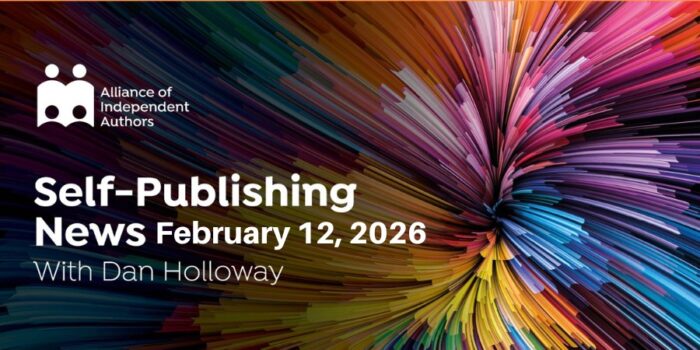How much does your route to publishing affect your attitude to your writing?
A rejection by her long-standing publishers sent previously highly successful 20th century English novelist Barbara Pym into what she described as a “wilderness” for 14 years, tragically cutting truncating her career until a brief later revival three years before she died. Who knows how many other modern classics she might have written in that time, without that bitter blow?
On the blog today, US novelist Errin Stevens describes how her own indie status redeemed her from similar damage at the hands of a traditional publisher, and why being self-published brings her greater joy in her writing.
The Freedom of Self-publishing
I consider myself in the ‘pre-middle' of my writing and publishing journey, and although parts of getting to this point were pretty awful, I now take more joy than I probably should in what I do.
In fact, were we sitting across from one another over coffee, you might see the glaze of fanaticism cover me as I report how much happier I am – or perhaps I'm just relieved – to be running my own show as an independent author.
And here's how I got to this point…

Errin Stevens' debut novel was initially held in abeyance by Penguin for four years
After drafting Updrift eons ago, I was put under an exclusive with Penguin US, pre-merger with Random House. They hung onto me a total of four years before dispatching a form rejection my way, this time post-merger. I was devastated, of course, and decided maybe small and nimble would be better. So I pitched around and signed with, then left one of those, finally landing with a mid-size with a good reputation.
Whew. I was on my way…
Except I really wasn't. The genre fit wasn't right from the outset, and the company wasn't doing well, things I'd been willing to overlook out of desperation for support… and out of an idea of legitimacy I had for myself that I was unwilling to examine too closely.
However, when their operations further softened, I realized I would have to step away to attempt what I really wanted for my stories.
Taking My Fate into My Own Hands

Errin Stevens has now self-published the second in the Mer Chronicles series as well as taking back her rights and republishing the first
In April 2016, I took my rights back, republished Updrift myself, then brought out a sequel. My third comes out February 2019 and I'm currently drafting a fourth.
Why am I gratified to be where I am after all this?
- Because I hired an artist to design my series covers and he did an amazing job.
- I found a structural editor with respect for my voice and my stories, not editing standards you're told will improve marketability but in fact don't.
- I published on the IngramSpark platform and continue to be stocked in independent bookstores across the U.S. Also I hired a voice artist with a killer baritone to produce my audiobooks, and I'm so proud of them.
- Sales-wise, I like to think I'm still climbing, although only time will tell and I'm continuing on no matter what.

Coming in February 2019: book 3 in the Mer Chronicles series – and the proudly indie Errin Stevens is on a roll writing the fourth
But. In the two-plus years since I've taken my own helm, I've gone from selling 2-3 books per week, to 1 book per day, to 3-plus books per day on average.
A traditional publisher would have given me three months to achieve exponentially more, then deemed me an unworthy investment… and likely kept the rights to my stories so I would have no ability to improve the situation.
I honestly don't know how I'll end up commercially, but I do know enough now to tell other writers they'll be better off minding their own store in these times. Be diligent, don't skip any steps, and lest you glided past that last statement let me say again, DO NOT SKIP ANY STEPS. Demand everything from yourself you would from a company that would take you on. And write your stories.
OVER TO YOU If you have a story to share about why you made the switch from trade to indie – or indeed in the opposite direction, or choose to be both – we'd love to hear about it.
How turning #indieauthor brought author @ErrinStevens more joy in her #writing & success on her own terms - inspiring guest post on the @indieauthoralli blog today #selfpub #ww Share on XOTHER THOUGHT-PROVOKING POSTS ABOUT TURNING INDIE
From the ALLi Author Advice Center Archive






I started off by only approaching a couple of publishers before going down the indie route myself. I never felt that I was a ‘true’ writer, so after achieving a good level of success myself, I approached one of the big companies. They said they’d be interested in one of my stories – it had the potential to be considered as long as I changed this….and changed that….. My reaction was, that changes the whole voice of the story and the characters. I also spoke with an agent about foreign translations. I waited and waited and when I finally contacted them, after being initially interested, they said no. The result? I’m pursuing my own translations with a royalty split with some good translators. We’ll see how it goes, but the ‘test’ with one of my books I initially had translated, is going quite well. I’m not saying I’m infallible, but my readers are vociferous if I write something they don’t like! The result is, I’ve not made the changes and resubmitted to the publisher. My sales are doing fine and although I still very much see myself as a learner in the whole business, I’m in control of my destiny and that’s how it’s going to stay! Don’t be scared – just take the plunge. It’s worth the scary moments!
Really good advice, Audrey, and thank you for sharing your own progression here. I was so convinced no one person could do what it takes to create exposure for a book or series… and now I’m absolutely convinced no one can do it better that the writer him- or herself. !!! I would be interested in hearing more about your efforts to get your translated stories if you care to correspond a bit? If you have the time and inclination, please message me on Facebook, @author.errin.stevens. Thank you again for your comments!
This was a great view into why Indie. I published my first novel in June 2016. I didn’t query a single agent. I was approaching 60 and didn’t want to sit around and wait for 2 years+ to see my first book in print. I knew nothing about promotion and marketing, and even less about cover design. Even though I used a professional cover designer, he didn’t fully understand the genre and the cover (and title) never quite fit. So now I’m hiring someone new for the cover, making a few internal updates (including a new last chapter since reviewers haven’t liked how it ended), changing the title and relaunching.
I know several local authors whose first books all got stuck at the same, now defunct small press, and that taught me a lot. If I ever decide to go traditional, it wouldn’t be with a small press, at least not one run by a single person.
Thank you for your comment, Jeanne. I love that you’re revisiting your stories and tweaking them as you go along, which is another great benefit to being the boss. I never meant to vilify publishers – I think they’ve been given an impossible task that is a brutal divorce from anything that truly serves the creative product. I hope we’ll see that situation change.
Your covers are amazing. You’re clearly on the right track for indie success! You’re growing your readership slowly but steadily; as you’ve realized, a trad publisher wouldn’t let you do that but in the indie world slow but steady growth is an excellent predictor of a thriving business.
I went indie from the beginning after only a couple of requests from agents. It took me five years to get somewhere (I’m a slow writer) but now I couldn’t imagine being any other kind of author. If you commit to quality publishing (which you clearly do) and believe in yourself through the lean years, good things will happen.
…and it’s comments like that from people like you who further support my belief in this “new” industry we’ve all created. Thank you for weighing in, Jane!
Great story to hear Errin…quite a journey. I quickly gave up on submittals to agents/publishers when I started writing in 2012. I was super lucky that the Kindle and indie publishing were taking off. I hooked a ride with the pioneers, reading blogs, listening to podcasts, whatever it took to learn and never regretted it. Thanks for the post!
Thank you for your comment, Brenda!
This is so similar to my experience, one mainstream publisher who jollied me along for nearly two years, with several different editors, but did I see the light? As Erin stated, it was my need of ‘that idea of legitimacy’ that kept me going. The company foundered and died. After all the re-drafting And being offered a regular job, I gave up for years.
My first Indie book was published in Oct 2018 and, boy, was I proud, even though I made a few Amazon submitting mistakes. Next book out February. I’m thrilled to have this re-start and sales of even one book will keep me going.
Good for you, sister! Yeah, I think there are a lot of us out there with similar stories. It’s helpful we really do have unprecedented opportunities to take our narratives where we want to take them rather than where someone else thinks they should go. It’s awful to be dumped, but thrilling to find the love of your life afterwards, right? 😉